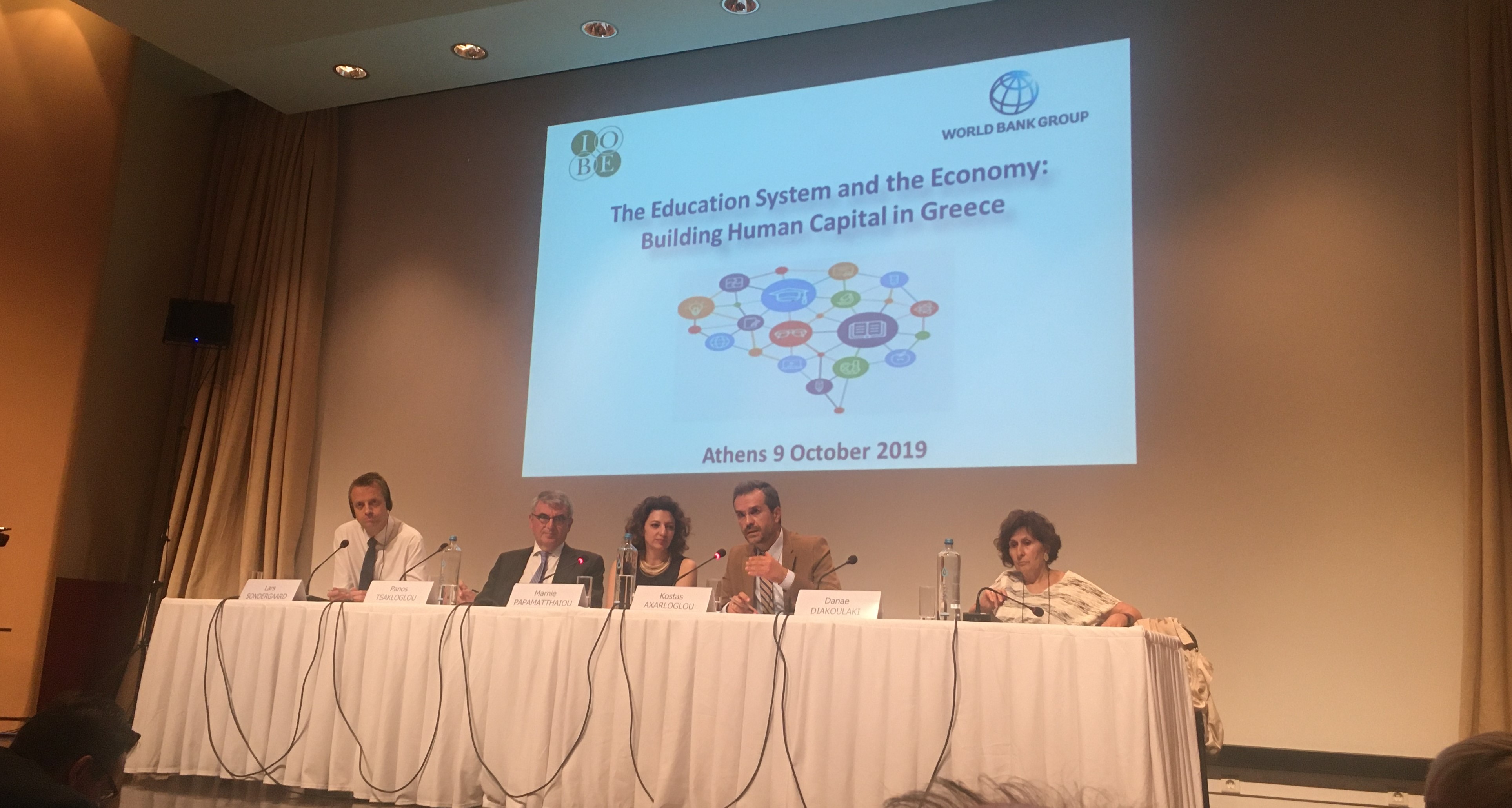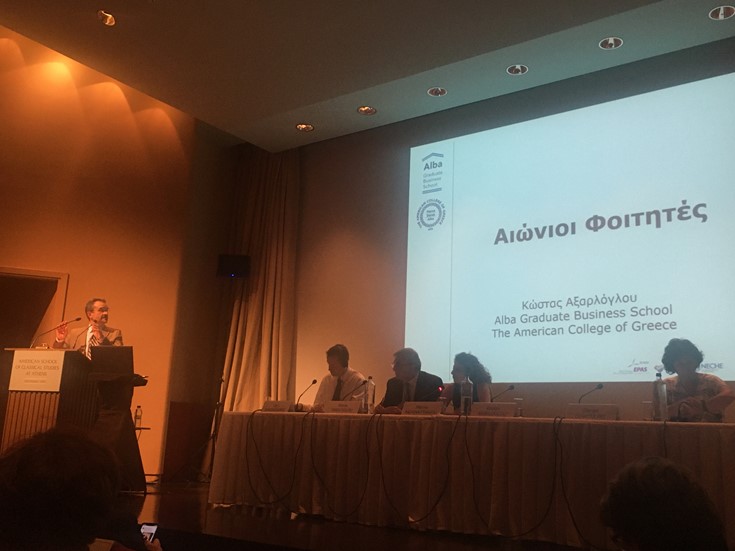The Educational System and the Economy: Building Human Capital in Greece

On Wednesday, October 9, Alba participated in a conference themed "The Educational System and the Economy: Building Human Capital in Greece", organized by The Foundation for Economic & Industrial Research–IOBE and the World Bank.
The event attracted significant personalities from the educational and financial worlds, promoting a constructive conversation on the importance of the Greek educational system in tomorrow's workforce.
The event’s main objective was to highlight the challenges that the Greek education system faces while presenting examples of other countries and international experience. According to the speakers, the educational system is a key element in the effort to rebuild the Greek economy and to alleviate social inequalities.From her part, the Minister of Education and Religious Affairs, Ms. Niki Kerameos, reiterated that education and substantial reform of the educational system are among the new government’s strategic goals.
Alba was also present, with Dean Kostas Axarloglou who participated at a panel discussion focusing on "Education Reforms". Dean Axarloglou spoke about a new approach to learning ecosystems, where the university plays a key role in connecting research and excellence with the needs of the global market.

“In the age where Digital Transformation and technology are disrupting the way we communicate, work and act, we are in need of continuous learning. Continuous learning, lifelong learning, is achieved within learning ecosystems based on the collaboration of universities, government and non-state, business organizations and social organizations which, orchestrated by the university, offer a variety of learning stimuli and the environment for continuous learning."
Dr. Axarloglou gave examples of a national strategy converging with university actions and business financing. He emphasized the importance of non-profit, non-state institutions as well as the need to develop a culture of continuous learning. He concluded by noting that today's event was actually a learning ecosystem!
Mr. Lars Sondergaard, Program Leader of the World Bank, pointed out that many countries which face a problem of reduced numbers of students, have changed the way education is funded and that these reforms require parallel reforms on the autonomy and accountability of institutions.





